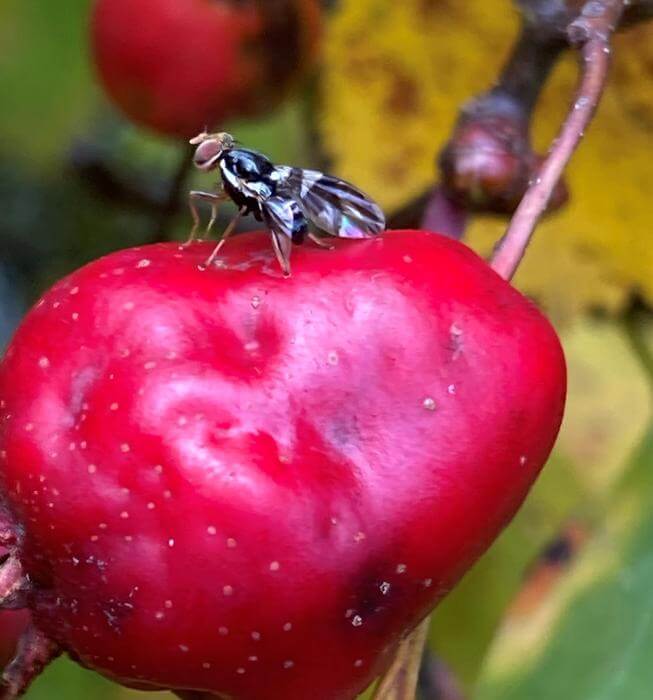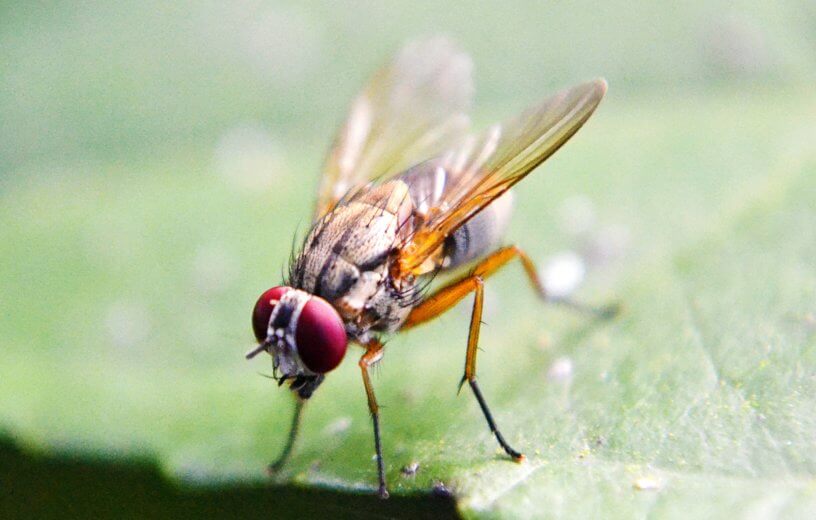BINGHAMTON, N.Y. — Climate change could trigger “widespread chaos” among insect populations by disrupting their ecosystems, a new study warns. Scientists in New York say that global warming could significantly disrupt ecosystems and hinder the evolution of new species.
The research was conducted by Dr. Thomas Powell, Assistant Professor of Biological Sciences at Binghamton University, and his team, who aimed to understand the impact of global warming on insects.
In the 1850s, the apple maggot fly, a significant agricultural pest, began to diverge into two populations in New York’s Hudson Valley. One population continued to inhabit the fruit of the area’s native hawthorn trees, while the other adapted to a new food source, apple trees, which were introduced to North America by English colonists.
“The entomologist who discovered this actually corresponded with Darwin about it potentially being an example of the origin of species in real-time,” says Dr. Powell in a university release. “It wasn’t until the system was picked back up by researchers in the late 20th century that we found out he was right.”
The study author further explains that hawthorns fruit about three or four weeks later than apples, resulting in a shift in the two fly populations’ reproductive schedules. This shift affects several species of parasitic wasp that prey on the maggot fly, demonstrating the intricate balance that sustains ecosystems.

(credit: Thomas H.Q. Powell)
The researchers conducted an experiment in which they raised populations of apple and hawthorn-based flies and parasitic wasps under conditions that mirrored the seasonal average from the last decade of climate data, as well as under warmer conditions predicted 50 to 100 years into the future.
The results have significant implications for insect biodiversity, according to Dr. Powell. Despite sharing the same location, the two fly populations exhibited drastically different responses to the temperature shift. The hawthorn-based population displayed greater resilience, potentially due to higher genetic diversity. Conversely, the life cycle of the apple flies was disrupted, throwing them out of sync with their host plant and possibly halting their speciation process.
Interestingly, the life cycles of the parasitic wasps remained unaffected by the increased heat. However, Dr. Powell warns this could have “dire consequences” if they fall out of rhythm with their prey’s life cycle.
He suggests that natural adaptation might restore balance in the disrupted systems over the long term, but rapid evolution faces significant challenges. For instance, habitats tend to be smaller and fragmented, limiting the amount of genetic variability needed for organisms to respond to evolving pressures.
“It’s not just that climate change is disrupting evolution through the potential breakdown of this classic speciation story, but that the rapid evolution of the flies has a strong bearing on how susceptible they are to climate change. So, if we’re finding that the effects of these future conditions may be completely different, even for identical flies from the same habitat that have been evolving since just the 1800s, we may see widespread chaos in the ecological timing of insect communities in the coming decades,” Dr. Powell concludes.
The findings are published in the journal Ecology Letters.
South West News Service writer Stephen Beech contributed to this report.


So how does government propose to destroy people’s lived by pretending to deal with this?